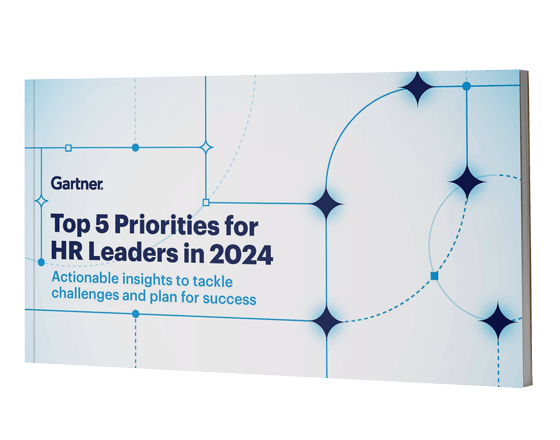What is Digital Transformation?
Digital Transformation has become a phrase at the core of board rooms world-wide. As the urgency for deep, sustainable transformation exponentially increases we’ve asked GC Partner organisation, Gobeyond Partners (Formerly OEE Consulting and Gobeyond) to walk us through what transformation in a post-digital era really is and the impact it has on organisations, people and culture.
What is Digital Transformation?
Transformation is a noble idea. While continuous improvement is about building on existing tools, processes and strategies, transformation is about rethinking core fundamentals, asking deep, searching questions. Often, it’s about changing the game, or indeed at times changing which game you’re playing.
In the challenging world of change it can sometimes be easy to mistake something as transformational. Often, technical improvement initiatives, while an important component of change, are mistaken as ‘Digital Transformation’ and ultimately fail to deliver on the broader strategic imperatives.
We see consistent conflation of digital and innovation with the ‘Uber’ phenomenon, pushing leadership teams to react to new, disruptive market entrants by attempting to replicate their delivery models, neglecting what their customers really want and how it embeds into the wider customer journey. If you read their story, Uber didn’t actually start with an app, if you read their story (as is true with many disruptive organisations) it was a great idea they bootstrapped and the tech came later. But there is confusion between successful innovation and digital – they have almost become synonymous.
If you look at these so-called disruptors a lot of them leverage digital – but digital is not the underlying proposition. This leaves a fairly large question – are legacy businesses looking to move what they currently do from analogue to digital or are they looking to genuinely innovate?
Why is Digital Transformation Important?
Two-thirds of global CEOs will start focusing on digital strategies to improve customer experience by the end of 2019. *Seagate
- 34% of companies have already undergone a digital transformation. *Smart Insights
- 44% of companies have already moved to a digital-first approach for customer experience. *IDG
- 56% of CEOs said digital improvements have led to revenue growth. *Gartner
We now live in a post-digital age, so transformation programmes naturally bring considerations around technology to the forefront. As we all know consumer expectations have changed, and continue to do so but one aspect that’s often overlooked is the employee experience. There are ever-increasing expectations that the way everyone works will become more digitally focused, similar to the manner in which technology is embedded in their day-to-day lives.
As cloud computing, application development and systems integration become easier and more cost effective with lead times for acquiring infrastructure and for developing solutions continuing to fall, the conditions are ripe for businesses that wish to do something truly different (rather than just better) to deliver exciting new propositions in an agile manner.
Digital technologies that drive enhanced experiences are no more than the various platforms and devices we interact with on a daily basis. Mobile tech, basic AI, social media… they are ubiquitous to the extent that anyone attempting transformation without embedding these elements would be met with extreme scepticism. As such are central areas of focus when selling to senior leadership teams. However, it’s this focus that often leads to underwhelming outcomes, frustrated stakeholders and spiralling costs.
Why is Digital Transformation so difficult?
One aspect not wholly forgotten, but the impact and challenge of which is often underappreciated is the human aspect of change. Thinking people-first from both a colleagues and customer perspective helps inform the design and delivery so that the intent and objectives are aligned and understood by people with an ability to deliver business value from the get-go.
Sufficient thought about those people who work for the organisation needs to be given when it comes to the implications of new technologies. We need to consider the following points:
- How is the new technology effectively integrated into ways of working?
- Do teams need to organise themselves differently?
- What new work is created?
- Are the processes and skills in place to execute effectively?
Many digital transformation programmes lack any obvious maturity or impact, failing to reach a tipping point due to the fundamental challenge of developing robust support mechanisms for people at the same pace as technology advancement. Change often lands slowly, poorly or not at all as frustrated colleagues slipping back to legacy ways of working in an attempt to deliver BAU activity and keep their heads above water.
Evolving legislations such as GDPR have also had a huge impact on transformation, especially where customer data is concerned, with perceived high-risk and rigid interpretation of guidelines used as excuses for lethargy. As long as a people centric-lens is also applied alongside technical implementations, there is no reason why innovation and regulation cannot co-exist and be a force for good.
The explosion in the use of mobile apps has also stimulated a ‘build it and they will come’ methodology, believing that modern delivery methods will connect with audiences and stave off competition. Such an approach often neglects robust due-diligence prior to development. To deliver value, clear usage cases need to be developed and clear benefits to customers identified alongside a robust plan to drive and maintain adoption. Clear communications and engagement, both internally and externally are critical and quite often missed straight out of the gate.
Unsurprisingly, many businesses begin with a technology focus. They buy a tool or set of tools and then look for instances to deploy them. This isn’t holistic enough and generally won’t deliver the results that individuals and organisations want. This results in the overall perception that Digital Transformation is problematic.
When we think about the employee element of a digital transformation there is nothing more transformational for your employees than knowing that change has been well planned, well thought through and will be implemented with low effort and clear benefit. They spend their free time in the elegant ecosystem of the iPhone and Netflix, when they leave that space and return to a work place that’s a decade behind, their ability to think innovatively becomes suppressed.
Digital Transformation is all about people and process as much as the technology that underpins it. It’s about challenging the status quo and being intolerant of the mediocre, re-framing the problem and craving new paradigms that eclipse that which came before.
Technology will always be a key enabler, but it’s the things the robots can’t do that remain the most important.
What has worked?
Where Technology changes are business led, rather than IT led, automation technology is able to enhance the value of human employees. For example low code workflow and automation platforms are able improve the flow of information along the journey from start to finish. User interfaces with role-centred design can simplify tasks that require human intervention, and delivering through a single interface, even if in actuality passing information from and to multiple systems in the background.
By placing Human Experience at the centre, supported by clear, scalable processes and operating models as well as the back-end technology being redesigned to focus on delivering the customer promise, clients have seen a distinct success in delivering Digital Transformation programmes that long-outlive the initial reveal and novelty.
About Gobeyond Partners
GC Partner Gobeyond Partners is a powerful new business formed by integrating the strengths of OEE Consulting and gobeyond. It is a collective of talented people working alongside some of the world’s best-known organisations.
A business built on 20 years of experience and expertise, with a dynamic new approach that combines award-winning consulting and training, innovative technology and next-generation managed services. Most of all, the team have an unrelenting dedication to partnering with clients to shape their businesses for the better. This is achieved through a commitment to working alongside clients to positively transform human experience, or HX.
At Gobeyond Partners we make real business change happen. We don’t just think. We don’t just design. We do.
We don’t approach problems with a codified methodology. We solve them using a pragmatic mindset and a commitment to commerciality.
This means we deliver lasting results quickly and effectively across all channels, all industries and all team levels.
Our proven middle-out, implementation led and fully transparent approach means you know exactly what to expect, while our engaging delivery ensures your teams are receptive to change. We specialise in the following areas utilising The GC Index:
- Change Management
- Culture Transformation Programmes
- Management Consulting
- Operational Improvement
- Organisational Design & Development
- Project & Programme Management
You can find out more about what we do and how we use The GC Index on our GC Partner page.
==================================================================================
Thank you to our contributors from Gobeyond Partners:
- Robin Harrison, Marketing Director
- Chris Hallmark, Managing Director Specialist Sectors
- Matt Ashford, Director of Knowledge and Innovation
- Dave Heywood, Digital Marketing Manager



